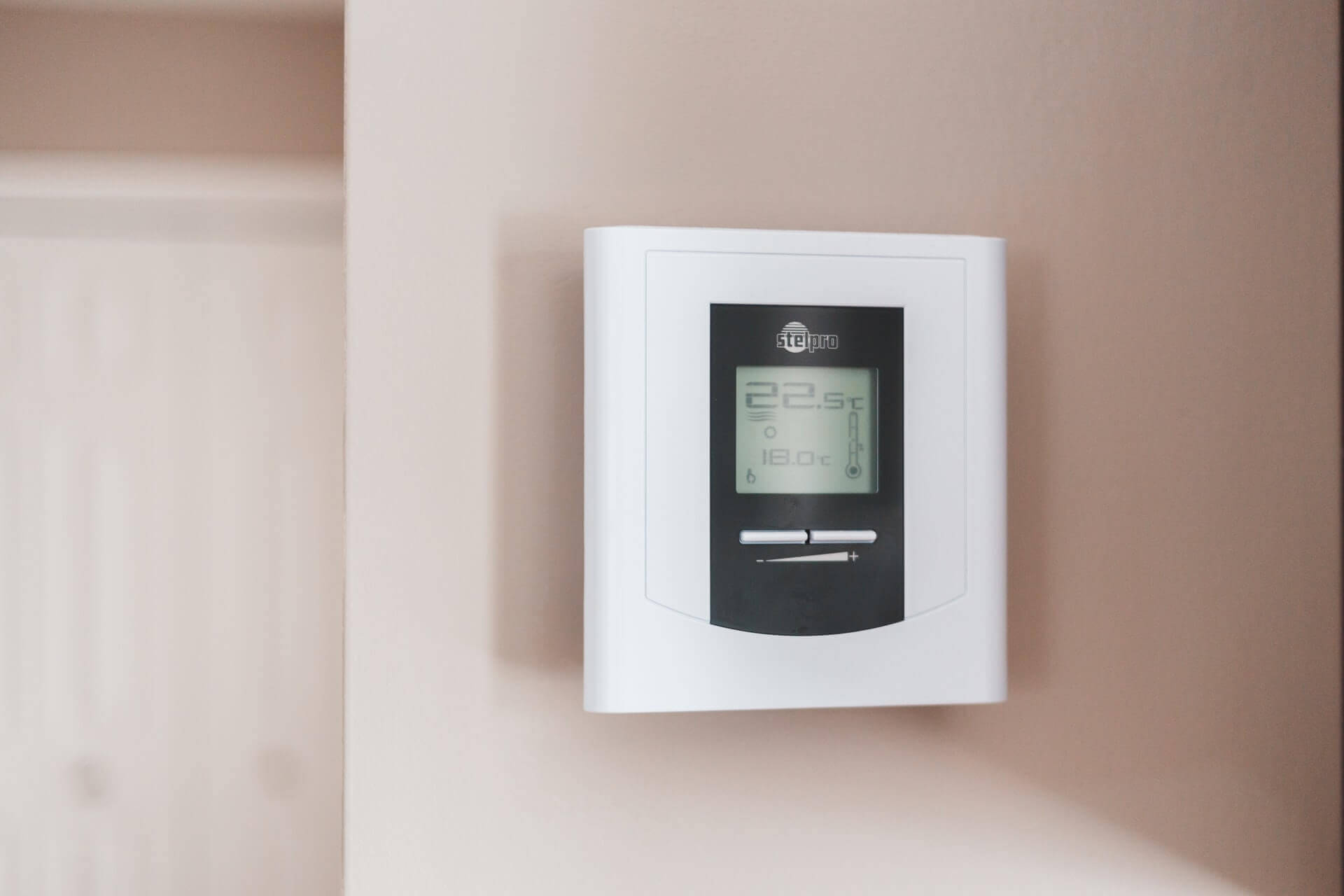The benefits of central heating

Central heating is probably the most common heating system found in homes today. It allows you to benefit from a pleasant atmosphere in your home while displaying advantageous technical characteristics. Discover everything you need to know about central heating, how it works, the different types, but above all its main advantages.
What is central heating?
A central heating system is a device that allows heat to be distributed from a starting point (usually a boiler) to the whole house via a distribution network that can be composed of radiators, a floor or a heating wall. Thanks to the central heating system, the whole house therefore only needs one heating unit from which the heat will be produced. It allows you to heat all rooms in the house to the temperature you want thanks to a device for adjusting the heating temperature range.
The central heating system generally uses electricity, gas, fuel oil, oil, wood, and solar energy to heat water and distribute it into the network. With modern homes, it is common to see a combination of several energy sources in order to optimize the efficiency of the heating system while saving on energy bills. The latest systems can even produce domestic hot water throughout the house.
A central heating system requires regular inspection to ensure that each element is working optimally. Wood heating, in particular, must be cleaned once or twice a year. Routine maintenance is also required every 5 to 10 years.
How does a central heating system work?
The operation of a central heating system is relatively basic. A heat generator, which can be a boiler, a heat pump or solar collectors, works with fuel oil, gas, electricity or with renewable energy.
Water is generally the heat transfer liquid used to transport heat to emitters that are heaters, floors, or heating walls. The cooled water will go back into the generator to be heated again, and so on. Emitters spread heat into rooms by convection or radiation.
What are the different types of central heating?
There are several types of central heating. Each is mainly differentiated by the energy source used.
Gas central heating
Gas is one of the most efficient energies for central heating by offering optimal thermal comfort. However, it is a fossil fuel that has a negative impact on the environment.
Wood-fired central heating
Wood is both an ecological and economic solution, as its cost remains relatively affordable and, thanks to sustainable forest management, it can be inexhaustible. Wood is considered biomass and comes in various forms, including logs, pellets, or wood chips.
The heat pump or heat pump
Heat pumps are particularly economical, as they use a minimal amount of electricity to operate. They can use water or air to transport heat to rooms in the house. Heat pumps can also be used as air conditioners in summer if they have a reversible function. There are also geothermal heat pumps that use heat in the ground to heat the house.
Solar central heating
Solar central heating uses solar energy to transform it into heat using solar collectors. It is an ecological and particularly economical solution, since the energy is completely free. However, this type of heating is generally combined with another type, since it has its limits when temperatures drop sharply in winter and the sun's luminosity is no longer optimal.
Oil heating
Less and less present in modern homes, oil heating was still very common a few decades ago. It uses fuel to operate, and it is increasingly being singled out for its negative environmental impact.
What are the main benefits of a central heating system?
If central heating is a huge success in homes around the world, it is because of the many advantages it provides. Here are the main advantages of this system.
A solution that allows you to save money
If you choose the type of central heating in your home wisely, you can make considerable savings in energy consumption. For example, if you combine a heat pump with solar heating, your electricity bill will be significantly reduced, while your home will be heated appropriately even during the coldest periods of winter.
Optimal heating comfort
Central heating distributes heat continuously via the distribution network. This allows you to keep a pleasant and homogeneous temperature in each room of the house, giving you optimal comfort at any time of the day or night.
An ecological solution
As we saw above, central heating can use renewable energies such as wood or solar energy. Thanks to these solutions, you not only save on energy consumption, but you also contribute to the preservation of the environment.
A low cost of use in the long term
At the time of purchase and installation, a central heating system can be relatively expensive. However, thanks to the savings you make on your energy expenses, you amortize your investment after a few years and the cost of use becomes more attractive.
A possibility of supplying the house with domestic hot water
On some central heating systems, it is possible to use water heated by the heat generator for the domestic hot water needs of the house. This allows you to save more and optimize the use of your heating system.
Guarantee: No traces, no stress — only lasting results.
5 000 +
96%
$6,275



.avif)



